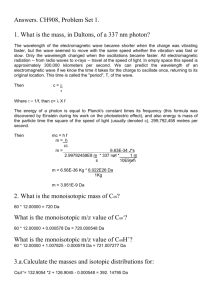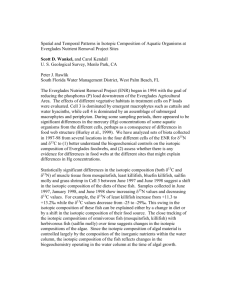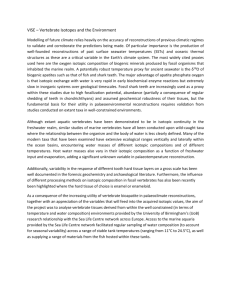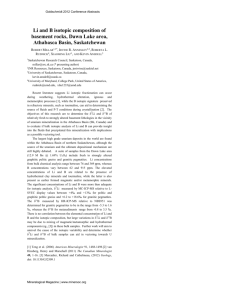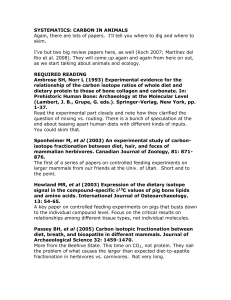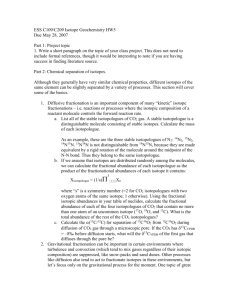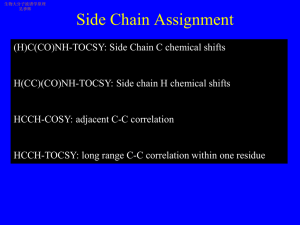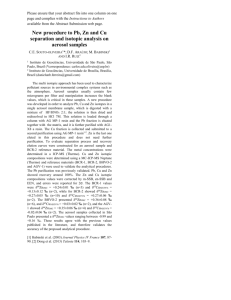isotopologue and isotopomer
advertisement
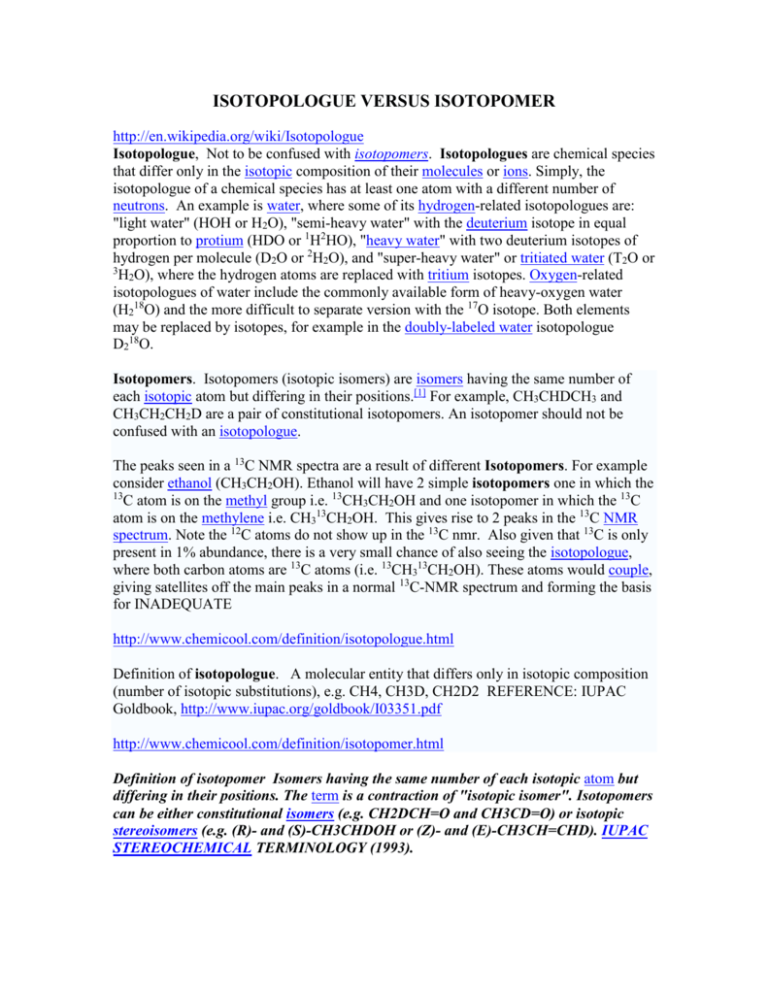
ISOTOPOLOGUE VERSUS ISOTOPOMER http://en.wikipedia.org/wiki/Isotopologue Isotopologue, Not to be confused with isotopomers. Isotopologues are chemical species that differ only in the isotopic composition of their molecules or ions. Simply, the isotopologue of a chemical species has at least one atom with a different number of neutrons. An example is water, where some of its hydrogen-related isotopologues are: "light water" (HOH or H2O), "semi-heavy water" with the deuterium isotope in equal proportion to protium (HDO or 1H2HO), "heavy water" with two deuterium isotopes of hydrogen per molecule (D2O or 2H2O), and "super-heavy water" or tritiated water (T2O or 3 H2O), where the hydrogen atoms are replaced with tritium isotopes. Oxygen-related isotopologues of water include the commonly available form of heavy-oxygen water (H218O) and the more difficult to separate version with the 17O isotope. Both elements may be replaced by isotopes, for example in the doubly-labeled water isotopologue D218O. Isotopomers. Isotopomers (isotopic isomers) are isomers having the same number of each isotopic atom but differing in their positions.[1] For example, CH3CHDCH3 and CH3CH2CH2D are a pair of constitutional isotopomers. An isotopomer should not be confused with an isotopologue. The peaks seen in a 13C NMR spectra are a result of different Isotopomers. For example consider ethanol (CH3CH2OH). Ethanol will have 2 simple isotopomers one in which the 13 C atom is on the methyl group i.e. 13CH3CH2OH and one isotopomer in which the 13C atom is on the methylene i.e. CH313CH2OH. This gives rise to 2 peaks in the 13C NMR spectrum. Note the 12C atoms do not show up in the 13C nmr. Also given that 13C is only present in 1% abundance, there is a very small chance of also seeing the isotopologue, where both carbon atoms are 13C atoms (i.e. 13CH313CH2OH). These atoms would couple, giving satellites off the main peaks in a normal 13C-NMR spectrum and forming the basis for INADEQUATE http://www.chemicool.com/definition/isotopologue.html Definition of isotopologue. A molecular entity that differs only in isotopic composition (number of isotopic substitutions), e.g. CH4, CH3D, CH2D2 REFERENCE: IUPAC Goldbook, http://www.iupac.org/goldbook/I03351.pdf http://www.chemicool.com/definition/isotopomer.html Definition of isotopomer Isomers having the same number of each isotopic atom but differing in their positions. The term is a contraction of "isotopic isomer". Isotopomers can be either constitutional isomers (e.g. CH2DCH=O and CH3CD=O) or isotopic stereoisomers (e.g. (R)- and (S)-CH3CHDOH or (Z)- and (E)-CH3CH=CHD). IUPAC STEREOCHEMICAL TERMINOLOGY (1993).
